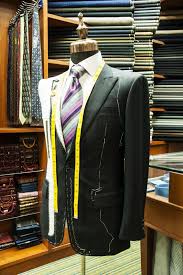In recent years, the fashion industry has faced increasing scrutiny for its environmental impact, prompting a growing movement towards sustainability. From the sourcing of materials to the manufacturing process and end-of-life disposal, every aspect of the fashion supply chain is being reevaluated to minimize harm to the planet. This article explores the concept of sustainable clothing and how it is reshaping the future of fashion towards a more environmentally friendly approach.
The Environmental Impact of Fast Fashion
Fast fashion, characterized by rapid production cycles and low-cost garments, has contributed significantly to environmental degradation. The industry’s reliance on cheap labor, synthetic fibers, and intensive resource extraction has led to pollution, deforestation, and waste accumulation. From water pollution caused by dyeing processes to the carbon emissions associated with transportation, the environmental footprint of fast fashion is undeniable.
The Rise of Sustainable Fashion
Amid growing concerns about climate change and environmental degradation, there has been a surge in demand for sustainable alternatives in the fashion industry. Sustainable fashion encompasses various practices aimed at reducing the environmental and social impact of clothing production. This includes using organic and recycled materials, implementing eco-friendly production processes, and promoting fair labor practices throughout the supply chain.
Innovations in Sustainable Materials
One of the cornerstones of sustainable fashion is the use of eco-friendly materials that minimize harm to the environment. Innovations in textile technology have led to the development of materials such as organic cotton, hemp, bamboo, and recycled polyester, which require fewer resources and have lower environmental impacts compared to traditional fabrics. Additionally, advancements in biodegradable and compostable materials offer promising alternatives for reducing textile waste.
Ethical Production Practices
Sustainable fashion also emphasizes ethical production practices that prioritize the well-being of workers and communities. This includes ensuring fair wages, safe working conditions, and respect for labor rights throughout the supply chain. Many sustainable fashion brands are transparent about their sourcing and manufacturing processes, allowing consumers to make informed choices that align with their values.
Consumer Awareness and Conscious Consumption
As awareness of the environmental and social impacts of fashion grows, consumers are increasingly demanding transparency and accountability from brands. Sustainable fashion advocates emphasize the importance of conscious consumption, encouraging consumers to buy fewer, higher-quality garments, and to support brands that prioritize sustainability and ethical practices. By voting with their wallets, consumers have the power to drive positive change within the fashion industry.
Conclusion
Sustainable clothing represents a paradigm shift in the fashion industry, challenging traditional notions of production and consumption. By prioritizing environmental stewardship, ethical practices, and consumer empowerment, sustainable fashion offers a path towards a greener future. While the transition to sustainable fashion may require systemic changes and collective action, it also presents an opportunity for innovation, creativity, and positive impact. By redefining fashion through a lens of sustainability, we can create a more equitable and environmentally conscious industry that benefits both people and the planet.







